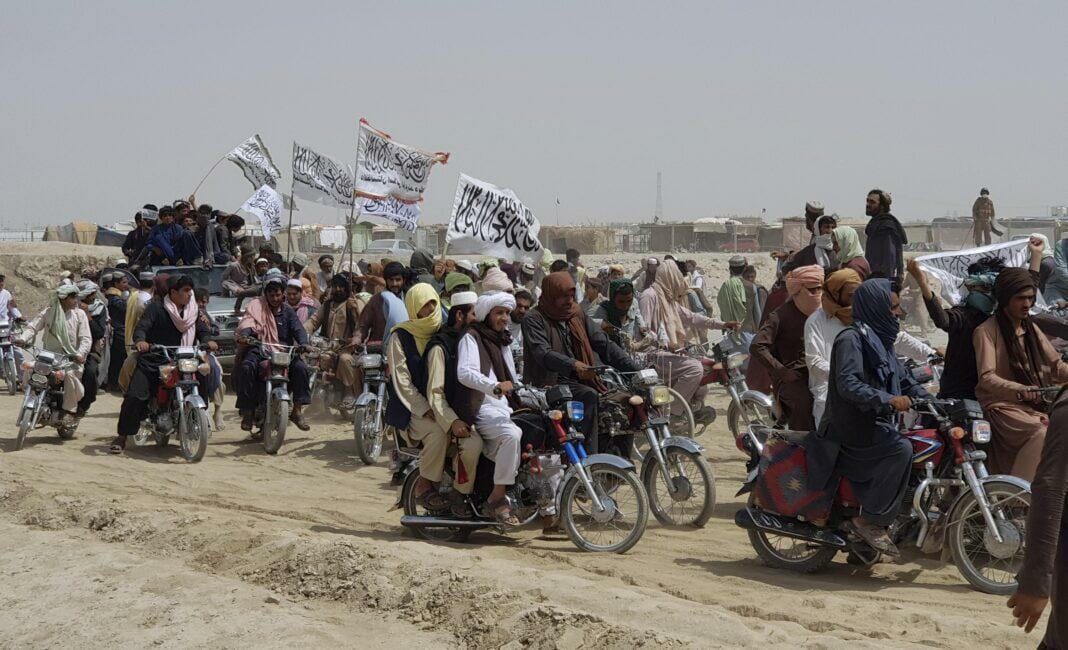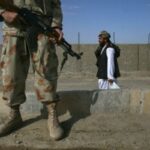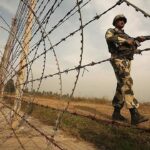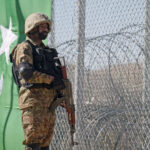Following the brazen attack by the Taliban on a corps headquarter in Balkh, the Afghan Defense Minister and the Army Chief resigned from their posts. This is tantamount to a concession by the state apparatus that the upsurge in the activities of the Taliban is hard to fend-off. The ease with which the Afghan military installation was targeted further shows the lack of fighting capabilities in the Afghan army. With two high profile US officials visiting Afghanistan in the last week; a policy-shift by the Trump Administration is impending.
Indeed, the Trump junta is mulling over intensifying kinetic operations in the country as evidenced by the employment of the GBU 43 Bomb on IS hideouts in Nangarhar. Dealing with Islamabad is another issue that Trump has to assess while devising a new approach for Afghanistan. What impact could the ferocious resurgence of the Taliban have on Pakistan?
PASSING THE BUCK ON ISLAMABAD
Islamabad is being continually berated for allegedly playing the “favorite game” to obviate Indian clout in Afghanistan. The US and the Afghan government have unequivocally castigated Pakistan of harboring and supporting inimical forces, to include the Taliban and the Haqqani Network. Relations between Afghanistan and Pakistan have soared over the past few months. Pakistan sealed the border and called upon Afghanistan to hand over leaders of the Tehreek e-Taliban Pakistan (TTP) and destroy infrastructure from where attacks on Pakistan are planned. The Pakistan military pounded hideouts across the border through heavy artillery and other munitions in February this year. Afghanistan vehemently rejects these assertions and instead blames Pakistan of supporting the Taliban. The US also expresses her misgivings in no uncertain terms. The demand to “do more “is repeated. time and again.
The National Security Advisor, Lt Gen McMaster during his recent visit to Afghanistan and Pakistan realized the importance of cooperating with Islamabad to root-out the scourge of terrorism. However, during the Afghan-leg of his tour called upon Pakistan to change its tactics.
“As all of us have hoped for many, many years, we have hoped that Pakistani leaders will understand that it is in their interest to go after these groups less selectively than they have in the past and the best way to pursue their interest in Afghanistan and elsewhere is through diplomacy, not through the use of proxies that engage in violence,” McMaster said in an interview with Afghanistan’s Tolo News Sunday.
Afghanistan also urged the US to take a tougher line against Pakistan. The worries of the Afghan government are ever-increasing; their inability to stem the flow of the Taliban is conspicuous. The US is adamant that the Taliban will be defeated. The US deems the Taliban as the main threat, something which is at variance with Russia thinks. The Administration is all set for beefing up its military presence in the country.
The application of disproportionate military power has been ineffective in dispossessing the Taliban of their center of gravity and other sources of strength. Hence, ramped-up military efforts will not deter the Taliban; as a matter of fact, the latter will up the militancy ante. This would frustrate not only the National Unity Government (NUG) but also the United States. The Taliban’s resistance would be attributed to Pakistan’s support and certainly the US would be pressurized to talk tough with Afghanistan’s eastern neighbor.
The US will increasingly look for policy options to deter and compel Pakistan. Kabul and New Delhi are in a strategic partnership, and with both having shared concerns about Pakistan, there would be a greater push to twist Islamabad’s arm.
There are voices in the United States which are clamoring for treating Pakistan in a different way, since it is a duplicitous ally. Such opinions will gain a lot of traction if the Taliban continue their march on Kabul, which is very much on the cards.
Another factor which will be a cause of concern for Islamabad is the growing tensions with India. Indeed, simmering acrimony in the Indo-Pak theatre will have its impact. India will try to influence the US to sort out the alleged “rogue state”. India and the US can take forward their strategic partnership; the former could be given a greater role in solving the Afghan conundrum, much to the chagrin of Islamabad.
However, it is important for the US to truly appreciate the situation on ground; they must understand that cooperation with Pakistan in solving the imbroglio is a safer bet than reinforcing a tried, tested and failed military-heavy Counter Insurgency strategy. Besides, the US must acknowledge the efforts of Pakistan in countering terrorism being its worst victim.
In a press statement today, US Defense Chief, Mattis said “I am a friend, an ally and a partner with the Afghan people. We will stand by you. Never doubt our resolve. We will win’. A US commitment to an Afghan-led peace process will lend a degree of credibility to this promise from a top US official. Only by rallying support of regional allies including Pakistan, the US can hope to knit some kind of a framework for future dispensation in Afghanistan. In all, Pakistani fears must be assuaged instead of being brushed aside, if the US wants to solve the problem.
Syed Ali Zia Jaffery is a Research Analyst and Sub-Editor at Global Village Space (GVS). He frequently writes on defense and strategic affairs of South Asia. He is a Contributing Analyst to CommandEleven.








